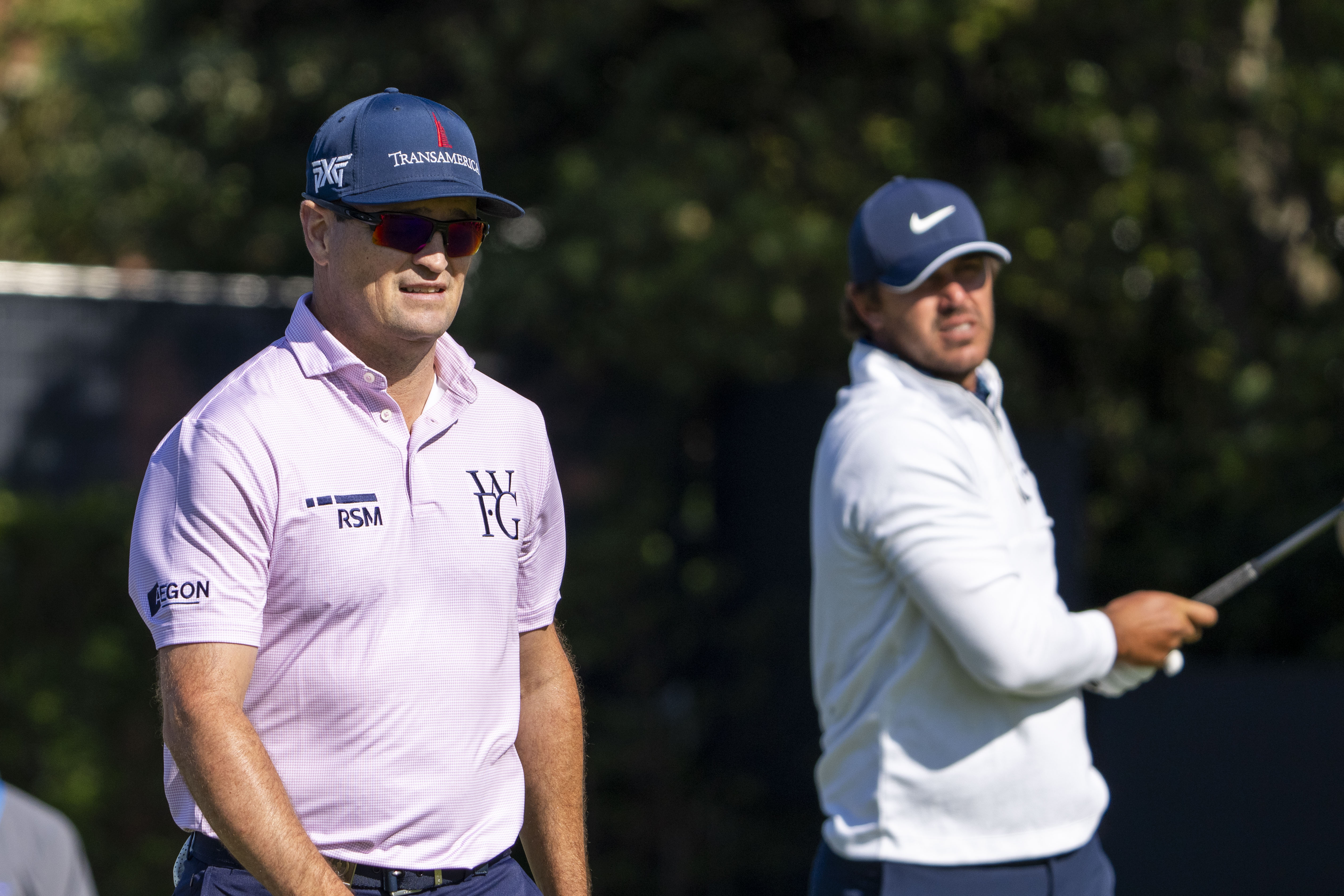The reasons for America’s abysmal 30-year run in Ryder Cup road trips aren’t as simple as putts not dropping or superstar players, like hodophobes and nachos — not traveling well. Decisions made prior to even reaching the departure gate have often been seen in retrospect as harbingers of defeat. Like in 2010, when the U.S. team arrived in Wales with rain suits ill-suited to rain, forcing officials to purchase alternatives in the merchandise shop. Or in ’14, when the lineup was settled so far in advance that America’s hottest golfer, Billy Horschel, was left out in the cold.
Strategic gaffes and imperfect pairings by Ryder Cup captains can be chalked up to the heat of battle, but decisions made before wheels leave the tarmac at home are seldom as easily excused. Corey Pavin’s catastrophe in Cardiff notwithstanding, it’s tough to screw up the uniforms, and no one really cares who the assistant cart jockeys are, which means the most perilous advance call for a captain is deciding which players get the nod after failing to earn their place automatically. Just ask Jim Furyk. He was carved up in the Paris post-mortem five years ago when not a single point came from three of his four picks, one of whom — Phil Mickelson — was more likely to hit Luxembourg with his driver than the punishingly narrow fairways of Le Golf National.
On Tuesday, Zach Johnson will choose the second half of his team for Rome, a decision that once promised to be as troublesome as figuring out what three colors to use in the uniform palette. While LIV defections sundered the U.S. team that easily won the ’21 Ryder Cup, the squad fielded at the ’22 Presidents Cup was dominant and unified. But only four men from that team are currently on Johnson’s roster, and four are so woefully out of form that picking them ranges from risky to indefensible. Meanwhile, the European side that appeared destined for a decade in the doldrums after the waxing at Whistling Straits looks more daunting by the day.
Having six selections provides safety in numbers for captains. A couple of under-performers won’t stand out as glaring missteps and will be forgotten if others deliver. On the flip side, six decisions cast a harsh light on a captain’s judgment, increase the odds of choices that seem more about loyalty than legitimacy, and add pressure on half the team to justify the vote of confidence. Cap’n Johnson faces a fraught 48 hours that could determine his Ryder Cup legacy before a ball is struck.
Justin Thomas is playing poorly but brings a leadership vibe to the team room. Lucas Glover is a hot hand, and while he won’t scare a Rory McIlroy in singles, nor will he be intimidated. Keegan Bradley spends every waking hour thinking about Rome, and no one else on the team has won more than him this season. Tony Finau has a couple of wins too and a stout team record, but has cooled. Rickie Fowler rediscovered his form of late and would be a popular selection among his peers. Cameron Young came oh-so-close to an automatic spot, but near misses are the hallmark of his career so far. Did I mention that Jordan Spieth, Collin Morikawa and Sam Burns need picks, too? All worthy guys, but nine into six just don’t go.
All of the aforementioned finished lower in the points race than Brooks Koepka. He was seventh, one spot shy of qualifying automatically. But that’s now meaningless; he may as well be 70th. Points determine the first six. The final six make it on metrics we don’t know — the intangibles most valued by Johnson, whether statistical (skill sets that are complementary for foursomes, strengths that balance shortcomings elsewhere), populist (personalities that fit, performances on prior teams), or personal (advocacy by influential voices, antipathy toward LIV). All or none of those might matter to Johnson, but it’s impossible to deny that the potential selection of Koepka is freighted with politics.
The sentiment — common in some quarters — that Koepka should not play for the U.S. because he joined LIV is legally problematic. Any move by the PGA of America or its agents, in this case Johnson, to punish a LIV player out of misplaced loyalty to the PGA Tour is fodder for an antitrust complaint. Even if Johnson has an aversion to LIV, he must assess Koepka by the same standards as other candidates. And if he decides against including him, he’d better be prepared to explain why in granular detail.
Koepka didn’t earn a place in Rome but deserves one. Not for what he did on LIV, but in spite of it. Exhibition golf only counts toward his bank balance, but when he did face the world’s best this year, he delivered: victory at the PGA Championship, runner-up at the Masters, top 20 at the U.S. Open. He has been his old, familiar self — competitive, ornery, focused, cutthroat. Even Europe’s stars would feel pressure facing him, which can’t be said of many who will line out for the U.S. For all his bro belligerence on social media and the assiduous marketing of himself as a lone wolf, Koepka is popular in the team room. He didn’t sign on to lawsuits or take shots at his former circuit. PGA Tour politics are immaterial to the Ryder Cup and he is by far LIV’s most competitively relevant member.
Johnson has options, but few that are Koepka’s equal. For Ryder Cup captains, there’s often a fine line between decisions being hailed as bold or derided as botched. Johnson faces criticism whatever call he makes on Koepka. Better to be slated for bringing a controversial soldier into battle than for leaving him in the barracks just because he’s a mercenary.

